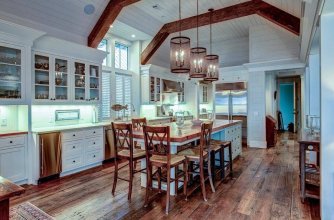.jpg)
A home addition is a significant investment, both in terms of finances and the value it adds to your property. While it is among the costliest home improvement projects, careful planning and foresight can help homeowners get the most value for their spending. In this short article brought to you by Construction Xperts, we review essential information about home addition costs. We’ll also share some tips on how to make the most of a limited budget.
If you are looking for a reputable home remodeling company, then consider the uniformed home remodeling contractors at Construction Xperts. Our team of professionals has experience with home improvement projects ranging from cabinet upgrades to a home addition.
A home addition is a substantial project that involves various costs, both direct and indirect. The most significant chunk of your budget will go into construction expenses, which include materials, labor, permits, and contractor fees. The complexity of the project, the size of the addition, and the location can all impact these costs.
Building permits and inspections are mandatory to ensure your home addition complies with local building codes and regulations. Extending utilities such as electricity, plumbing, and HVAC to the new addition will also add to the overall cost.
Once the structural work is complete, you'll need to allocate a portion of your budget for interior finishing. This includes flooring, wall coverings, fixtures, and any required customizations.
Finally, it's wise to allocate a portion of your budget for unexpected costs or changes in the project scope. A contingency fund can help you address unforeseen issues without straining your budget.
Our number one tip is careful planning. Define your goals, create a detailed design, and work with professionals to understand the project's scope and potential issues in advance. Prioritizing needs over wants can help you make the most of your budget.
Next, don’t shy from shopping around! Obtain multiple quotes from contractors to make sure you’re getting competitive pricing for the construction work. Further, don't hesitate to negotiate and discuss cost-saving options with your chosen contractor.
If your budget is limited, explore financing options such as home equity loans, personal loans, or home improvement grants. For extremely tight budgets, a phased approach can help. You can complete the project in stages as your budget allows, ensuring that each phase is well-executed.
With a big project like a home addition, you can’t afford to get stuck in the details. A home addition is a substantial investment, and you want it made to last. Think of the long-term implications of your choices. Opting for low-quality materials can mean a shorter lifespan. Similarly, investing in energy-efficiency and long-term benefits can provide benefits for years to come.
If you would like to consult with experienced home remodeling contractors, then consider Construction Xperts. We are happy to listen to what you have in mind for your property, and we look forward to sharing our insight. Together, we can bring your dream to life without denting your wallet.
.jpg)
Prefabricated vs. Custom Countertops Remodeling a kitchen is exciting but it comes with a barrage of questions. For instance, what will the countertops be made…
Read More+

Different Types of Stairs in Home Remodeling Construction Stairs are…
Read More+
6 Tips for a Successful Home Remodeling Project A home…
Read More+
Design-build Firm vs. Architect/Designer: Who Should I Hire? One of…
Read More+
Hidden Costs of Kitchen Remodeling A kitchen remodeling project can…
Read More+